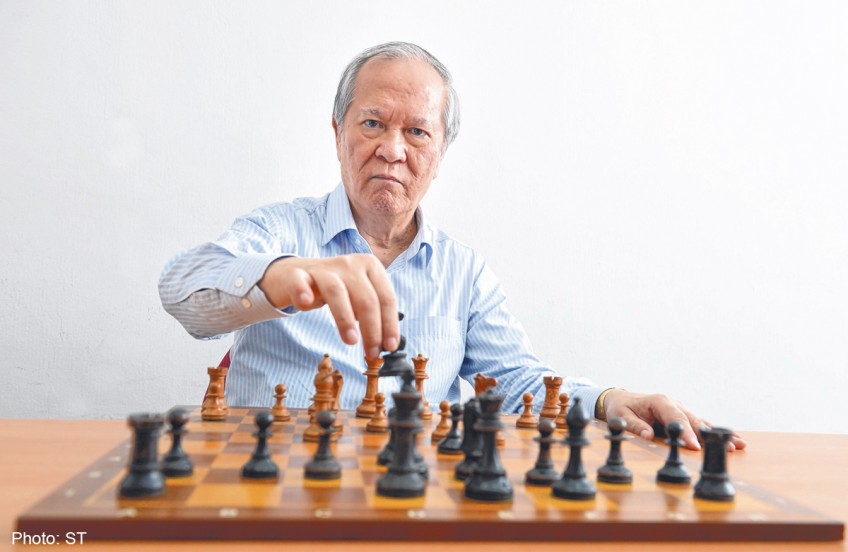A hero's welcome for feat in Aussie tourney

Chess prodigy Tan Lian Ann picked up the game when he was nine by watching his two older brothers play.
At 10, he impressed former chess champion Lim Kok Ann with his skills and the medical professor took him under his wing to train and prepare him for overseas competitions.
By 11, he was beating his brothers routinely at the game - a feat that resulted in numerous fights, literally.
"I remember the loser would throw the chess set. But we were very close," Mr Tan, now 68, said with a laugh.
His brother Lian Quee was seven years older than him and brother Lian Seng was five years older. Lian Quee died eight years ago.
Together, the Tan brothers kept the Singapore Chess Championship in the family for seven consecutive years from 1961 to 1967.
They were the only chess players among seven siblings.
When Lian Ann joined Raffles Institution, the school team included his brother Lian Seng and was unbeatable in chess.
He was 17 in 1965 when he won the chess championship in Singapore.
He later represented the country in the Chess Olympiads four times from 1968 to 1992 and became Singapore's first chess master.
Asked what he liked about the game, Mr Tan, who went on to study accountancy at the then University of Singapore, said: "It's a battle of the minds.
I take great pleasure when I checkmate my opponent."
Chess helped him hone many skills useful in life. "It trains your ability to analyse situations because you have to see moves ahead and do calculations.
It also trains your concentration and discipline because a game can last many hours," said Mr Tan, who is managing director of trading company ALJ Singapore.
He felt that chess has lost its shine in Singapore now, compared to 50 years ago.
He recalled coming in second in the prestigious Australian Open Championships in 1963, and receiving a hero's welcome at the airport.
He was greeted by then Finance Minister Goh Keng Swee before being driven away in an open-top motorcade.
He stopped playing competitively in 1992. "I realised I wasn't good any more.
That was when computers came into the picture and people were learning from the computer.
It shortens the learning process but I didn't have time to do that. I was too busy with my business," he said.
He is now more of a social chess player, though he did take part in the ASEAN Age Group Chess Championships last year. He came in first in the over-50 category.
His greatest wish for the game? That more children will pick up chess in Singapore so that the country will produce more exceptional players.
"Tell parents it's not only good for character-building, it also helps in maths and science," he said.

This article was first published on Apr 12, 2015.
Get a copy of The Straits Times or go to straitstimes.com for more stories.